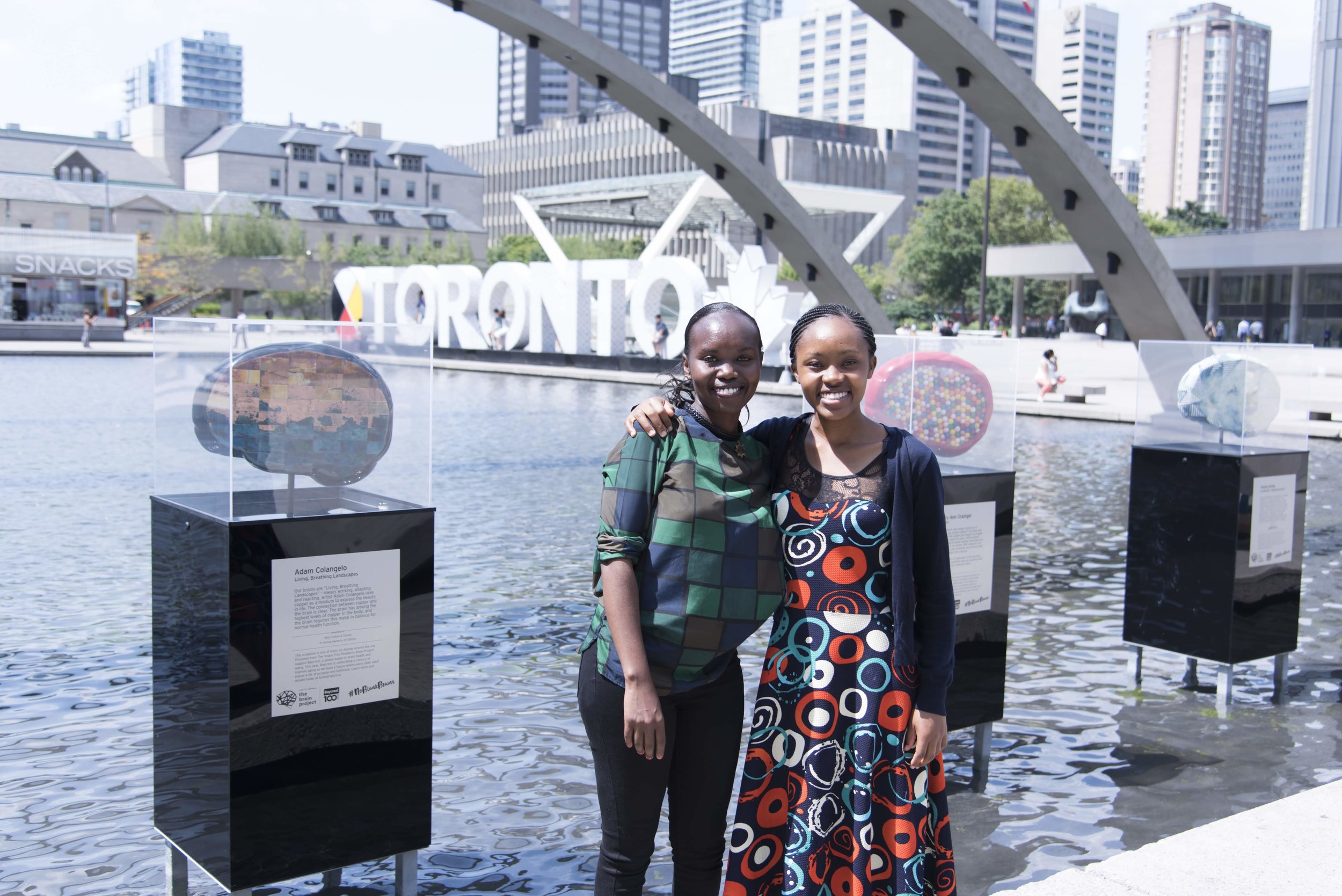People of AMPATH: Tabitha Maisiba, observing Kenyan medical student
Written by Tabitha Maisiba, Observing Kenyan medical student with the Department of Obstetrics and Gynecology at the University of Toronto. Used with permission of colleagues at the University of Toronto, an AMPATH consortium member.
If I would use one word to describe Canada, then it would be efficiency and one word to reflect my stay here, then it would be growth.
What has stood out most for me is the efficiency of the health system and service delivery to the patients. The universal health system in Canada has made health care very accessible to all Canadians. The spirit of team work, proper communication, research-based practice, confidence, time-keeping and being up to task is what stood out for me.
Tabitha Maisiba (right), observing Kenyan medical student at the University of Toronto Department of Obstetrics and Gynecology enjoys the sights of Toronto with colleague Winnie Rotich.
All the doctors here, I’ve noticed, are all goal-oriented and their goal is to provide the best health care for the patient. I have seen the team work of staff, fellows, residents, nurses, anesthetists, medical students and family in achieving this goal. The coordination of all these people is just amazing.
There was one time a staff member was doing a repeat c-section. There was some bladder damage and a fellow staff member was called to assist. She was readily available to help repair the small bladder mucosal damage. On a different occasion with a fifth repeat c-section, they discovered that the bladder was completely adhered to the anterior uterine wall and called the urology team which responded promptly and helped to sort out the situation. I’ve also seen staff members seeing a patient on behalf of another when they’re unavailable and this team work is something I really admired and would definitely take back home.
Proper communication is vital in patient care. I loved how consent would be sought from the patient, and how they would explain the benefits and the risks to patients in detail and how everyone in a team - for example, in the birthing unit - would introduce themselves to all patients when starting their shift, and all procedures would be explained to the patients before and during the procedure. I also appreciated how the staff members with whom you’d be scheduled to work would have received a heads-up concerning your presence at their clinics, as well as their coordination with staff of different specialties by making referrals if the patients needed it.
Canadians are also up to task and confident in what they do. I wasn’t in a position to get too hands on because of the observership program, but I loved the confidence of everyone who was taking care of patients. Everyone would be up to their task and do what they’re supposed to do confidently. I have realized now, even more than in medical school, one has to be aggressive and willing to learn, and if given opportunity to do something they should be up to the task. The medical students, the residents and fellows were willing to learn and try something new and they’d get the confidence to do it next time. The fear of trying something new is gone. I’ll be more confident too in doing what I already know and learn how to do what I don’t know from more senior colleagues.
Something else that I found very outstanding was that the medical practice is research-based. All the staff, fellows and residents that I interacted with were quoting research done and the exact details when asked by the patient. It was not a matter of "I like doing this in this particular way just for the sake of it," but that there’s a research done that shows that this is the best way of doing things. So I believe this was important because all the doctors would be speaking one language, as well as giving the patient the best care based on the latest guidelines. Patients would therefore benefit from various things like the Tdap vaccine because Health Canada had recommended its use in pregnancy and also the use of aspirin for patients with a high risk of preeclampsia.
Something else that I really liked was the support patients receive from their family members. I liked how husbands would attend antenatal clinics with their wives and be available for the delivery of their children. This is something we rarely see back home, but I believe is very vital.
Sincerely, I have grown. I feel like my eyes have been opened to the ideals of how health care should be provided to patients. I’m more determined than ever to integrate what I’ve learned here in management of patients back home, and share it with others when giving my feedback back home. Being alone in a hospital has also helped me learn how to communicate with others, especially when I was getting lost during the first few days. But I learned how to communicate and, in case of change in the days schedule, how to sort it out with the various administrators on time.
I want to scale greater heights in my medical career, so I hope you wouldn’t be surprised to see me few years down the line doing my residency here. I believe this was an eye-opening opportunity and it hasn’t left me the same. I will miss Canada, but the memories and the growth will remain etched in my heart.
I would like to take this chance to thank everyone who was involved in making this a success i.e. Dr. Spitzer and her family, Alexandra Aaviku, Joe George, Dr. Heather, Dr. Marie, Dennis, Dr. Julie from Kenya, Sarah Ellen who organized this elective, and all the people who were involved. May God richly bless you. Ahsante.

